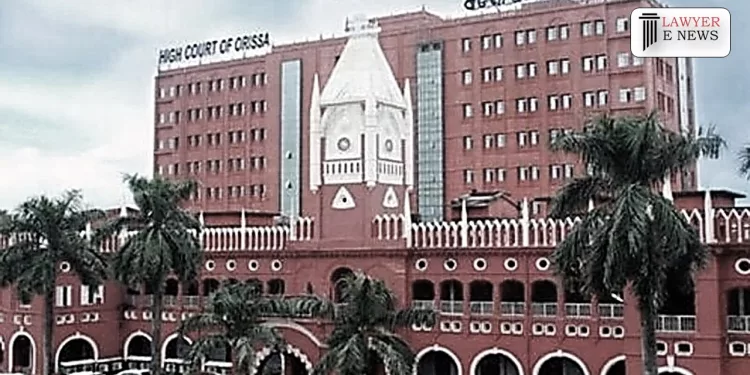High Court of Orissa Upholds Tribunal Decision on UGC Scale of Pay for Lecturer Despite Initial Qualification Deficiency

In a landmark judgment dated May 21, 2024, the High Court of Orissa, under the bench of Hon’ble Justice Biraja Prasanna Satapathy, dismissed the appeal filed by the State of Odisha. The appeal challenged the State Education Tribunal’s decision to grant the UGC scale of pay to Dasarathi Sahoo, a lecturer in English, despite his initial deficiency in qualifications at the time of appointment. The case, registered as FAO No. 512 of 2009, revolved around the application of Section 24-C of the Orissa Education Act, 1969.
Background
The controversy began with the appointment of Dasarathi Sahoo as a lecturer in English at Mangala Mohavidyalaya, Kakatpur, on March 20, 1980. At the time of his appointment, Sahoo did not meet the requisite qualification of having 55% marks in his M.A. in English. However, this deficiency was condoned by Utkal University on September 15, 1989. Following the condonation, the Director of Higher Education approved his appointment on August 27, 1992, which included provisions for grant-in-aid. Despite these approvals, the State Government denied Sahoo the benefits of the UGC scale of pay, leading to his legal battle.
Key Points of the Judgment
The High Court upheld the Tribunal’s decision based on several critical factors:
Condonation of Qualification: The Utkal University’s condonation of Sahoo’s qualification deficiency was central to the judgment. The court affirmed that once a deficiency is condoned, it is effectively forgiven and should not hinder the individual’s eligibility for benefits.
Legal Precedents: The judgment referenced the decision in Kalidas Mohapatra v. State of Orissa, where similar circumstances led to the eligibility of the UGC scale of pay despite initial qualification deficiencies. This precedent was upheld by the Supreme Court, thus binding on the current case.
Consistency with Legal Principles: The court emphasized that the decisions must align with established legal principles and precedents unless overruled by a larger bench. The judgment in Mamata Mohanty, which suggested that such condonations were not binding, was deemed non-precedential in this context due to its coordinate bench status.
Court Observations and Analysis
Justice Satapathy’s detailed analysis highlighted the following observations:
Binding Nature of Precedents: The court reiterated the importance of adhering to earlier decisions by coordinate benches unless overruled by a larger bench, citing several Supreme Court judgments supporting this view.
Judicial Discipline and Legal Certainty: Emphasizing judicial discipline, the judgment underscored that conflicting judgments create legal uncertainty. Therefore, the earlier decision in Kalidas Mohapatra should prevail in the absence of a larger bench overruling it.
Eligibility for UGC Scale of Pay: The judgment clarified that Sahoo was entitled to the UGC scale of pay from January 1, 1986, based on the condonation of his qualification deficiency and subsequent approvals by relevant authorities.
Conclusion
The dismissal of the appeal by the State of Odisha marks a significant affirmation of judicial precedents and legal principles. The judgment not only benefits Dasarathi Sahoo but also sets a precedent for similar cases where initial qualification deficiencies are condoned by competent authorities. The State may consider further appeal options, but for now, the High Court’s decision stands as a robust interpretation of the Orissa Education Act and related judicial precedents.
Date of Decision: May 21, 2024
State of Odisha & Another v. Dasarathi Sahoo & Another






